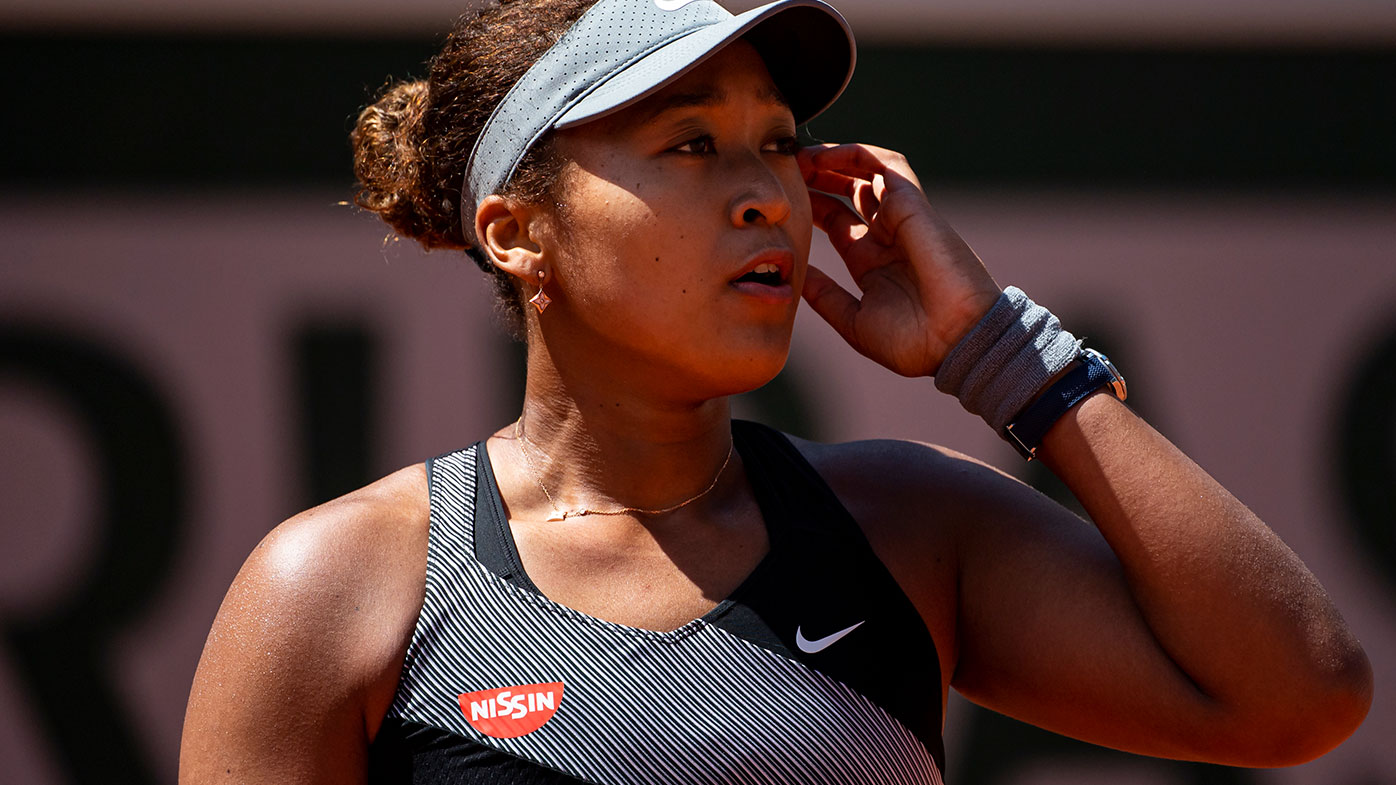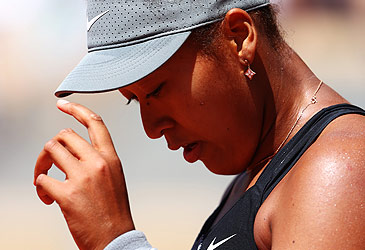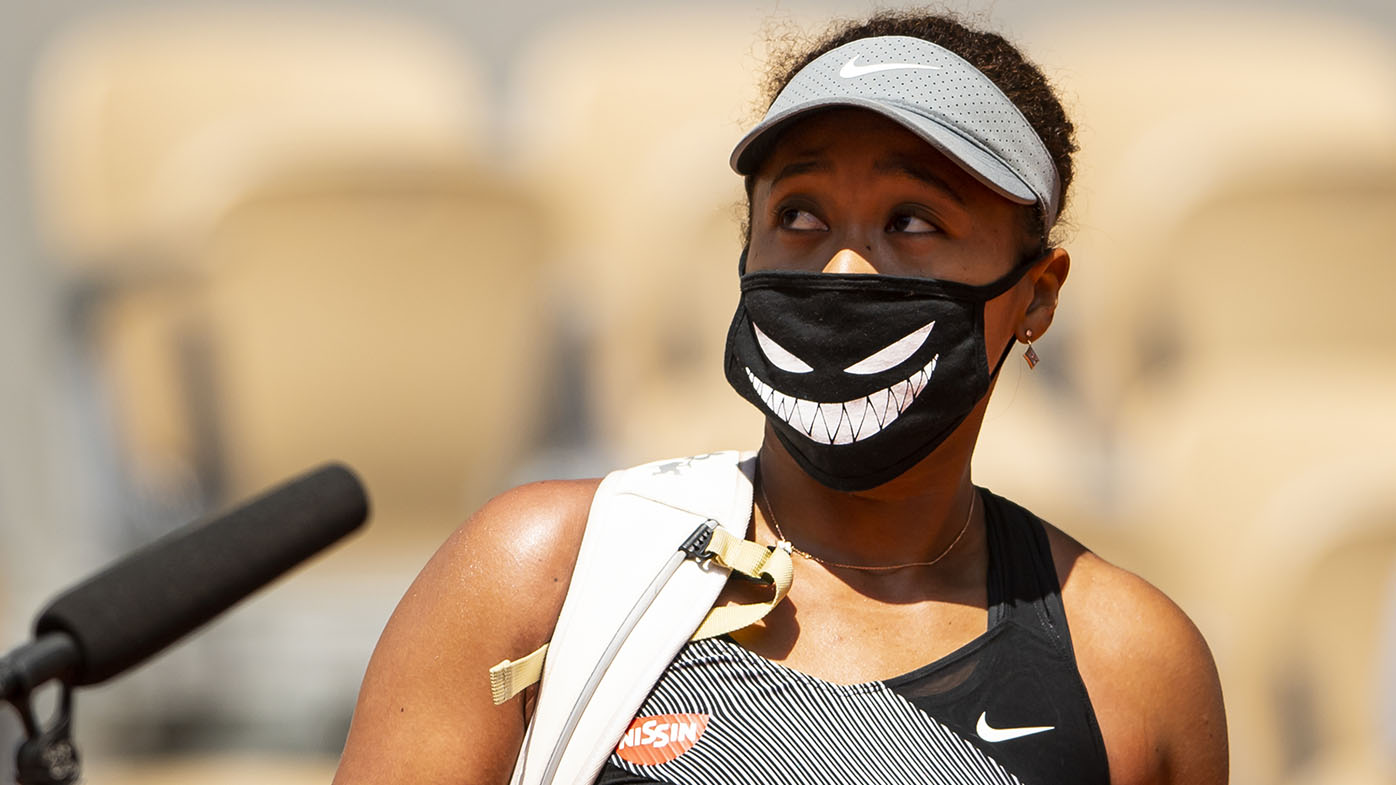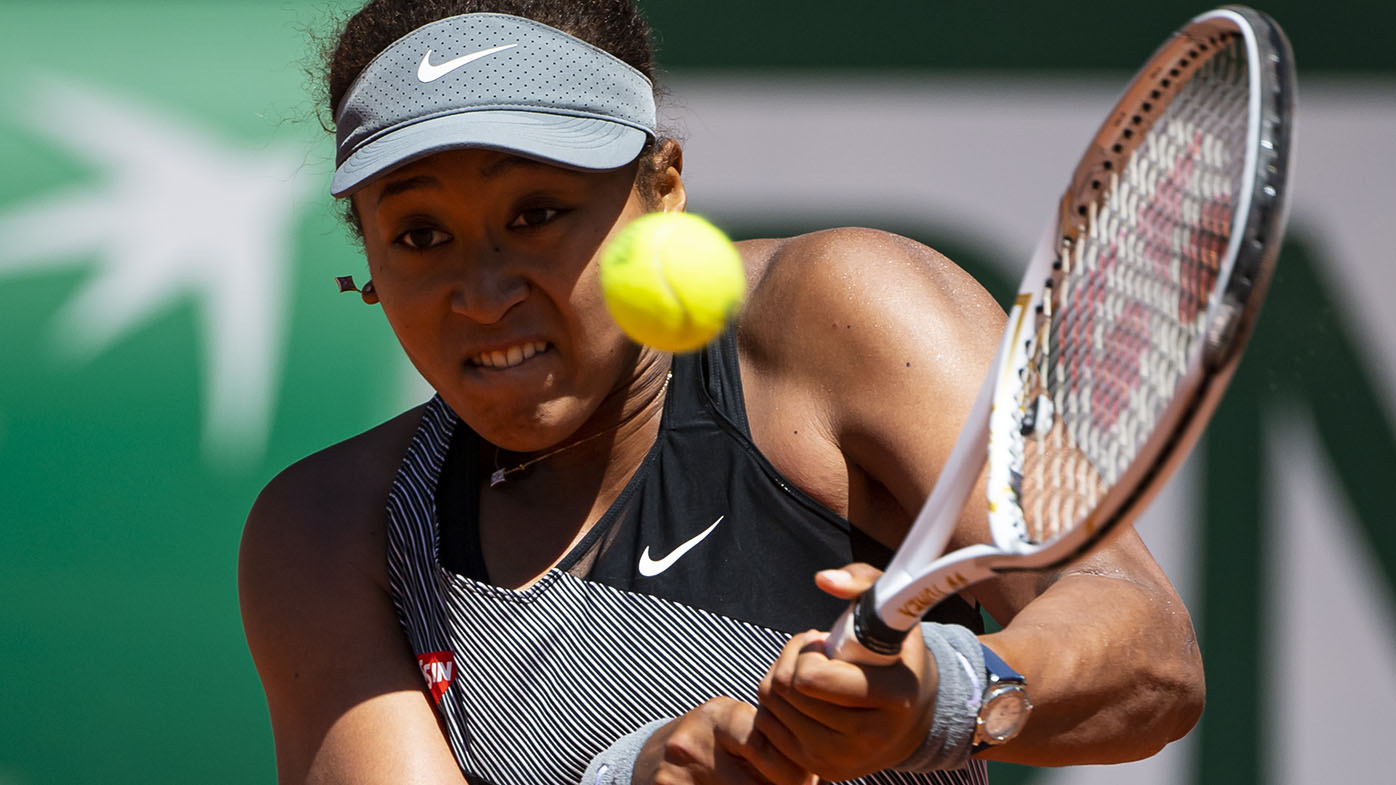Naomi Osaka has withdrawn from the upcoming German Open in Berlin, in what could be a sign she isn't intending to compete at Wimbledon later this month.
The German Open was due to be her only grass-court tournament prior to the year's third major.
The world No.2 could still request a wildcard for the lead-up tournament at Eastbourne, or even play at Wimbledon without a grass-court event under her belt.
The only place tennis fans can watch every Roland Garros match is on Stan Sport. Start a seven-day free trial of the Stan Sport add-on now!
What seems more likely at this stage, however, is she will skip the grass-court season altogether.
That follows her withdrawal earlier this week from Roland-Garros, after a stand-off with tournament organisers over the mandatory post-match media conference which Osaka chose to boycott.
After saying it wasn't good for her mental health, Osaka then withdrew from the tournament altogether after the opening days were completely overshadowed by discussion on her stance.
Osaka said that she'll take a break from the game, without specifying how long that break would be, and when she returns to tennis, she wants to work with the various governing bodies to improve the interaction between players and media.
Leading commentator, and former player, Sam Smith, is hopeful Osaka will be able to compete at Wimbledon, where she's twice made the third round.
"The English are great at getting around tables and thrashing things out, and obviously we want Naomi to play at Wimbledon, so I'm just hoping the All England Club speak to her management, and Naomi if possible, and find a way to get through this so that's she's OK," she told Wide World of Sports.
"The irony is she's done this to relieve the pressure from the media, and it's had completely the opposite effect.
"It's caused a media storm, and caused a lot of fallout on her fellow competitors who've had to answer questions about it, which she did not intend at all."
The media storm that Smith refers to has seen many players questioned over Osaka's stance, and could be one of the reasons behind her withdrawal.
"I know (Osaka's former coach) Sascha Baijin quite well, he said that she's just the sweetest, loveliest, most caring human being you could ever meet," Smith said.
"I think one of the reasons she pulled out was because she felt badly for her fellow competitors."
Osaka's return to the game, whenever that may be, will need to be carefully managed, or her first press conference risks turning into a shambles, potentially driving the four-time major champion away from the game again.
It's one reason Smith has advocated for a change in the way players and media interact.
"The interaction between the players and the media needs to change. I've sat in those press conferences, and I usually sit there thinking, 'Let's do it differently,'" she said.
"There's so much dead time in press conferences, and you get very little out of them. And that's not great for the sport. We need to find the way to get the best content for the sport, while also taking into account the welfare of the players in that very confrontational situation."
Smith said she expects Osaka's Roland-Garros withdrawal to be seen down the track as the turning point in the discussion around the mental health of players, and also a watershed moment in the way tennis administrators communicate with players who are generally much younger than the officials.
"It's such a shame that press conferences distress Naomi so much," she explained.
"I've seen her break down at Wimbledon in a press conference. It's not about winning or losing. It's a really tough situation.
"I thought I'd seen it all after so long in the game, but this last year has been quite something.
"What slightly concerned me about the FFT (French Tennis Federation) statements is they think this will pass. That's not the case, things need to change."
Smith explained that Osaka's profile as the world's highest-earning female sports star, will draw attention to the issue in a way the actions of no other player could.
And Smith says that's a good thing for the mental health of the players.
"From a player's point of view, it's like being in the dock in a courtroom at times. It's tough," she noted.
"Now the can of worms has been opened by the highest profile woman in sport, who says things that athletes don't normally say.
"She experiences the world in a way few others do."
For a daily dose of the best of the breaking news and exclusive content from Wide World of Sports, subscribe to our newsletter by clicking here!





Leave a Reply
You must be logged in to post a comment.